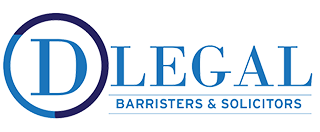There were several important developments in relation to letters of demand and debt collection practices.
We have recently seen examples of letters of demand that amount to misleading and deceptive conduct. This is not only a breach of s18 of the Australian Consumer Law (ACL) but also rule 28.2 of the Victorian Professional Conduct and Practice Rules 2005 (the Rules).
Rule 28.2 states that “A practitioner must not, in any communication with another person on behalf of a client: …make any statement that is calculated to mislead or intimidate the other person, and which grossly exceeds the legitimate assertion of the rights or entitlements of the practitioner’s client”.
Statutory notices
Some legislation, such as the Consumer Credit Code, requires creditors to send you specific notices before they can take further action to force you to pay the debt.
These notices say how long you have to bring your repayments up to date before further action will be taken. For example, notices about loan accounts covered by the Consumer Credit Code must give you at least 30 days to bring the account up to date
Due Care
Care should be taken when preparing letters of demand to ensure that these provisions are not breached both in relation to demand for the debt and any costs.
The ACCC has a publication entitled Debt collection guidelines: for collectors and creditors which explain how Commonwealth consumer laws relevant to collection of debts apply. A copy can be obtained free of charge at this linkhttp://www.accc.gov.au/content/index.phtml/itemId/733222
When writing or reviewing debt collection letters and notices remember:
- If something is only a possible consequence of not paying a debt, ensure you do not create the impression that it is a definite consequence;
- Before asserting the right to payment of administrative and/or legal costs on top of a debt amount, ensure you are aware of whether or not your client has a legal entitlement to claim this amount;
- Ensure you do not create the impression that your debt collection letters and notices are documents that have been or are able to be filed with a Court.
What should I do if I receive a letter of demand?
It can be hard to know whether the debt is yours, and whether the correct amount is being claimed, especially if the debt has been ‘sold’ by the creditor to another party, such as a debt collection agency.
If a creditor has contacted you about a debt you think you do not owe, or if you disagree with the amount being claimed, you have a right to dispute the debt or the amount of the debt.
